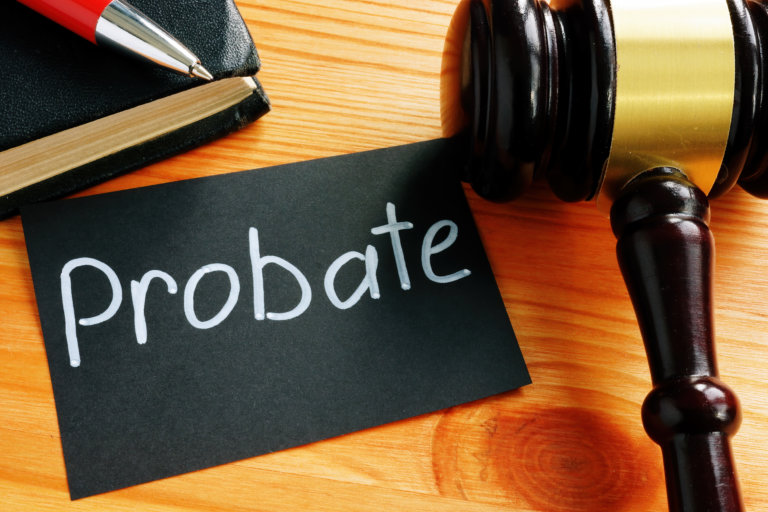Real estate is often one of the most highly valued and complex assets that may has to be administered during the probate process. Understanding Florida’s intricate rules surrounding real estate and probate is essential to properly probating real property in Florida. Here is what you need to know about handling real estate in a Florida probate case.
Check the Estate Planning Documents
The first thing to do is to check the estate planning documents to make sure the property is part of the probate estate and has not been handled in a different manner. Common arrangements related to real estate are included in:
- Wills – A Last Will & Testament is a legal document that states how a person wants their property distributed after their death. If real estate is included in a Will and the property is titled solely in the deceased’s name, a probate will likely be required to transfer the ownership of the property to the heirs.
- Trusts – A trust is a legal arrangement in which a trustee manages property transferred to the trust according to the creator’s instructions. If the property was titled to the trust, the property will generally not need to go through the probate process. However, the trustee may be required to notify the probate court of its existence and provide necessary notice to other parties who may choose to contest the trust. Other documents may also need to be filed with the clerk to show the change of trustee.
- Deeds – A deed is the legal document that establishes ownership of a property. Some forms of ownership conveyed via a deed can pass outside the probate process, such as joint tenants with rights of survivorship or property passed through Lady Bird Deeds. A property that is solely owned in the deceased’s name will likely have to go through the probate process in order to be properly distributed to the deceased’s heirs.
- Corporations and Limited Liability Companies – Sometimes, property owners own real estate in the name of a corporate entity. In these cases, the controlling agreement of the company may dictate the terms of how the property should be valued and handled upon on an owner’s death. Often times, if the sole owner of the company is the deceased individual, a probate of the shares is required.
If you’re not sure how your loved one’s real property was owned or whether a probate is needed, an experienced real estate and probate attorney can review the pertinent documents and advise you on the next steps.
Open a Probate Case
If the real estate is part of the probate estate, you will need to open a probate case to begin the process of legally transferring ownership of the property to the heirs.
There are two main types of probate cases in Florida. Formal administration is often the longer and more involved probate process. It involves creating an inventory of the decedent’s assets, valuing the assets, notifying creditors, paying off outstanding debts, and distributing assets. Summary administration is a shorter and less complicated form of probate, but it is only available in limited cases, including when the total value of the property is less than $75,000 or if the deceased passed away more than two years ago.
After the probate case is opened, you can then seek additional court orders, as necessary. Examples may include:
- Order to Determine Homestead – This order establishes that a property is considered a homestead (i.e., primary residence) under Florida law, so it is exempt from the majority of creditor claims. The creditors will not be able to force the sale of the property to have their debts repaid.
- Authorization to Sell Real Property – The personal representative may need court approval before they have the legal authorization to sell the property, unless there is a specific power of sale included in the Will.
- Confirmation of Sale – The court can retroactively confirm the sale of a property.
Consider How to Handle Real Estate
There are typically a few options on how to handle real estate. The Will may indicate who should inherit the property or if it must be sold and the proceeds distributed to the heirs. Options for real estate transferred during the probate process may include:
Sell the Property
In some cases, the beneficiary may wish to sell the property rather than occupy it. Heirs can sell the property as part of the probate process once the court authorizes the sale (if the Will does not contain a “power of sale” clause).
Transfer Ownership of the Property
If the beneficiary wants to live in the property or use it as an investment property by renting it out, they will need to have the deed transferred to their name. This can be completed as part of the probate process.
Return the Property to the Bank
In some circumstances, the beneficiary may learn that the property is highly encumbered and that the mortgage exceeds its value. They may decide that they want to return the property to the mortgage provider rather than having to deal with an underwater asset.
Maintain the Property
Regardless of how you choose to handle the property, you should maintain it during the probate process. These responsibilities may include:
- Continuing to pay the mortgage
- Paying homeowner’s insurance and taxes
- Paying utilities
- Completing yard work and internal and external maintenance
- Making repairs
- Securing the property against trespassers
Contact Farshchian Law for Assistant with Your Real Estate or Probate Needs
If your loved one owned real estate and you need assistance in determining how to handle it during the probate process, or you need help with selling the property, contact Farshchian Law. We provide estate, probate, and title/closing services throughout the State of Florida. Call us at (800) 604-1871 or email us via our secure online contact form to schedule a free consultation.

